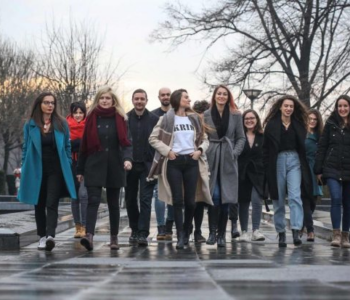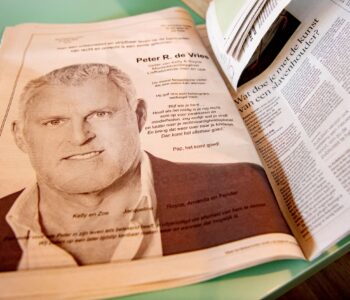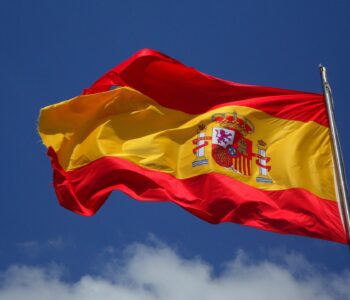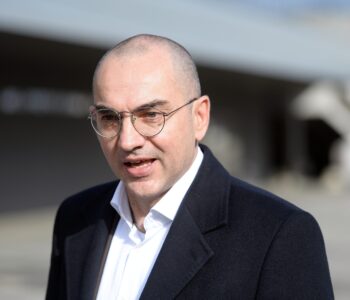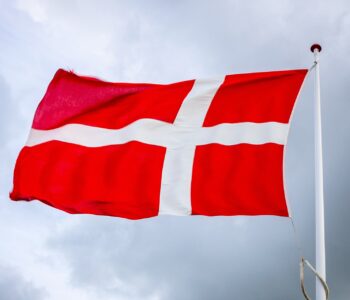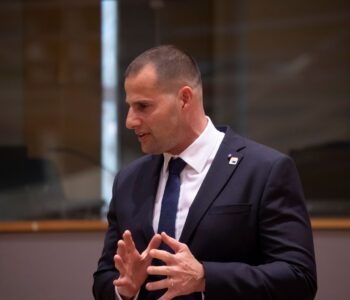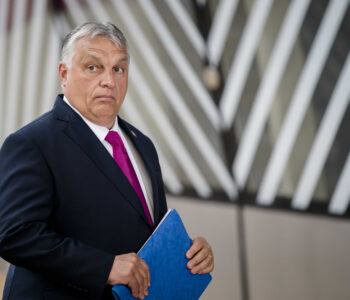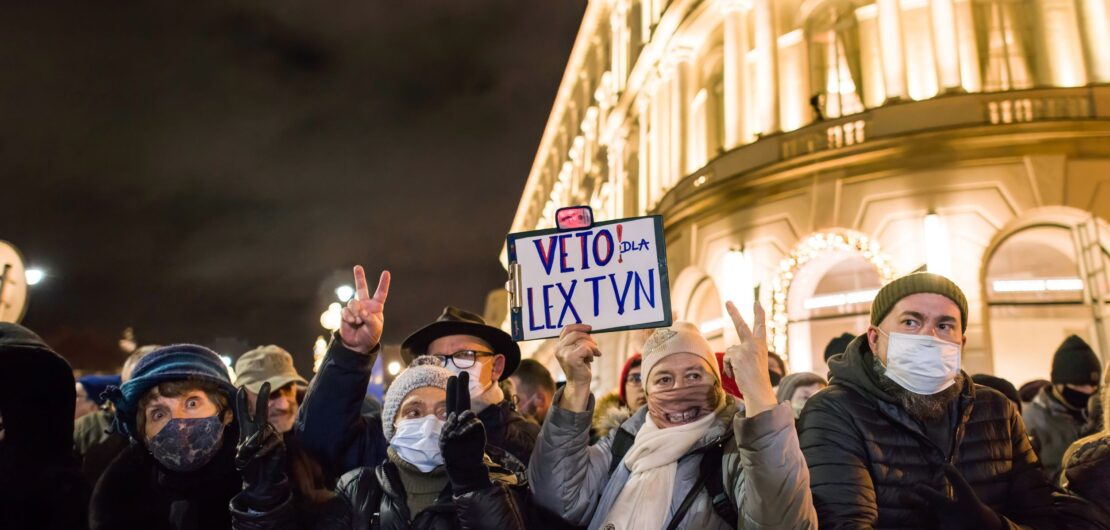 Library
Library
Poland: Media freedom groups urge President Duda to veto…
Poland: Media freedom groups urge President Duda to veto ‘Lex-TVN’
The undersigned international media freedom and journalists groups are writing to urge you to apply a presidential veto to the so-called “Lex-TVN” amendment passed by the Sejm on December 17, which we believe poses a fundamental threat to media freedom and pluralism in Poland. This bill represents a direct attack on the independence of the country’s biggest private broadcaster, U.S-owned TVN, and its news channel TVN24.
Dear Andrzej Duda, President of the Republic of Poland,
The undersigned international media freedom and journalists groups are writing to urge you to apply a presidential veto to the so-called “Lex-TVN” amendment passed by the Sejm on December 17, which we believe poses a fundamental threat to media freedom and pluralism in Poland. This bill represents a direct attack on the independence of the country’s biggest private broadcaster, U.S-owned TVN, and its news channel TVN24.
Rather than a sincere effort to protect Poland against hostile foreign media takeovers, our organisations are convinced that this media ownership law has always been about one goal: slicing through TVN’s ownership structure and forcing Discovery to sell a controlling 51% stake, opening the door for government-allied entities to potentially acquire stakes and ultimately engineer a shift in editorial position to one more favourable to the ruling party. Far from a secret, the Law and Justice (PiS) MP responsible for drafting the amendment, Marek Suski, has publicly stated the true intention of the law: obtaining greater influence over TVN’s programming.
Such a clear effort to enact media legislation that pushes out foreign owners is reminiscent of well-documented tactics used by governments in Hungary and Russia to bring independent channels under control via government-friendly entities. While laws restricting foreign media ownership do exist in EU member states, this bill is not a principled and proportionate effort to protect the Polish information landscape. Rather, it is clearly aimed at undermining one particular outlet and is part of a wider effort to “repolonise” the media. As you have previously outlined, any changes to media ownership must be conducted under market principles rather than via heavy-handed government intervention. Lex-TVN represents a clear and politically-motivated effort to strong-arm such changes through legislation and must therefore be opposed.
In addition to undermining fundamental democratic values, the proposed amendment to article 35 of the Broadcasting Act also raises legitimate doubts about its compliance with EU law and will almost certainly lead to a legal challenge from the European Commission. As the Senate has already identified, it is also inconsistent with the Polish Constitution. It also breaches the U.S-Poland Bilateral Investment Treaty, simultaneously undermining Poland’s reputation as a welcome climate for foreign investment and uprooting relations between Poland and its closest ally. That the bill was unexpectedly approved by the Sejm just before the parliamentary break, without prior announcement, and in violation of rules on adequate debate, is also deeply problematic.
The stakes of this decision for media freedom, democracy and the rule of law in Poland are high. Ultimately, your decision about this bill should not be about whether one agrees or disagrees with TVN’s coverage. It should be about the principle of media pluralism and the ability of citizens to access information from a variety of news sources. It should also be about the fundamental right of the media to fulfil its watchdog role and scrutinise those in power. And it should be about ensuring fair market conditions in a media sector free from government interference.
After the Sejm passed the initial bill in August 2021, you outlined your concerns over the law’s detrimental effect on freedom of speech and diplomatic relations. Despite being firmly rejected by the Senate, the bill awaiting your decision remains unchanged in both its form and its ultimate purpose. We therefore urge you to remain true to your word and use your veto power to outright reject this law and safeguard the freedom of the press in Poland.
This statement was coordinated by the Media Freedom Rapid Response (MFRR), a Europe-wide mechanism which tracks, monitors and responds to violations of press and media freedom in EU Member States and Candidate Countries.

Organizacje na rzecz wolności mediów apelują do Prezydenta Andrzeja Dudy o zawetowanie ustawy Lex TVN
Szanowny Panie Prezydencie Andrzeju Dudo,
My, niżej podpisane międzynarodowe organizacje działające na rzecz wolności mediów i dziennikarzy piszą, zwracamy się do Pana Prezydenta z apelem o zastosowanie prezydenckiego weta wobec nowelizacji ustawy medialnej znanej powszechnie jako „lex TVN”, przyjętej przez Sejm 17 grudnia 2021. Naszym zdaniem tworzy ona fundamentalne zagrożenie dla wolności i pluralizmu mediów w Polsce. Ustawa w obecnym kształcie stanowi bezpośredni atak na niezależność TVN największego, należącego do USA prywatnego nadawcy w kraju, i jego kanału informacyjnego TVN24.
Nasze organizacje są przekonane, że zmianie ustawy medialnej przyświeca cel zgoła inny niż szczera ochrona polskiego rynku przed wrogimi przejęciami mediów zagranicznych. Mianowicie chodzi o wpłynięcie na strukturę własnościową TVN i wymuszenie na Discovery sprzedaży kontrolnego pakietu 51% udziałów. To stworzyłoby warunki do potencjalnego przejęcia udziałów przez podmioty sprzymierzone z rządem, co w efekcie mogłoby wpłynąć na linię redakcyjną, tak aby była bardziej przychylna władzy. Sam Marek Suski, poseł PiS odpowiedzialny za przygotowanie nowelizacji, w publicznych wypowiedziach nie ukrywał prawdziwej intencji stojącej za zmianą ustawy jaką jest właśnie uzyskanie większego wpływu na przekaz programowy TVN.
Strategia wprowadzania w życie przepisów medialnych, które wypychają z rynku zagranicznych właścicieli, przypomina dobrze znaną taktykę stosowaną przez władze na Węgrzech i w Rosji. Chodzi o kontrolę niezależnych kanałów za pośrednictwem podmiotów przyjaznych rządowi. Chociaż w państwach członkowskich UE istnieją przepisy ograniczające własność mediów zagranicznych, proponowana przez PiS nowelizacja ustawy medialnej nie spełnia warunków do traktowania jej w kategorii proporcjonalnego środka służącego ochronie krajobrazu medialnego w Polsce. Wręcz przeciwnie – ma wyraźnie na celu osłabienie jednego konkretnego podmiotu i wpisuje się w szerszy plan dążenia do tzw. „repolonizacji” mediów w kraju. Wszelkie zmiany dotyczące własności mediów muszą być przeprowadzane na zasadach rynkowych, a nie poprzez arbitralną interwencję rządu. Lex-TVN jest wyraźnym i umotywowanym politycznie działaniem na rzecz usankcjonowania takich zmian w ustawodawstwie czemu należy się przeciwstawić.
Proponowana zmiana art. 35 ustawy o radiofonii i telewizji oprócz podważenia podstawowych wartości demokratycznych budzi również uzasadnione wątpliwości co do jej zgodności z prawem UE i istnieje wysokie prawdopodobieństwo, że zostanie zaskarżona przez Komisję Europejską. Jak już wskazał Senat, jest ona również niezgodna z Konstytucją RP. Ponadto narusza również polsko-amerykański dwustronny traktat inwestycyjny, jednocześnie podważając reputację Polski jako przyjaznego klimatu dla inwestycji zagranicznych i zrywając stosunki między Polską a jej najbliższym sojusznikiem. Głęboko problematyczne jest również to, że ustawa została niespodziewanie uchwalona przez Sejm tuż przed przerwą parlamentarną, bez uprzedniej zapowiedzi i z naruszeniem zasad jakimi powinna cechować się debata sejmowa.
Pańska decyzja dotycząca nowelizacji ustawy medialnej ma ogromne znaczenie zarówno dla wolności mediów, jak i demokracji i rządów prawa w Polsce. Dlatego też niezwykle istotnym jest, aby nie była ona podyktowana osobistym stosunkiem do przekazu jaki reprezentuje TVN i tym, czy zgadza się Pan z treściami tam przedstawionymi. Decyzja powinna być podjęta w duchu zasady pluralizmu mediów i możliwości dostępu obywateli do informacji z różnych źródeł wiadomości. W podjęciu tak ważnej decyzji priorytetem powinno być zabezpieczenie fundamentalnego prawa mediów do pełnienia swojej roli strażnika i kontrolowania rządzących. I wreszcie – decyzja musi być w zgodzie z zasadą zapewnieniem uczciwych warunków rynkowych w sektorze medialnym, wolnym od ingerencji rządu.
Już po uchwaleniu przez Sejm wstępnej ustawy w sierpniu 2021 roku wyraził Pan Panie Prezydencie swoje obawy dotyczące szkodliwego wpływu ustawy na wolność słowa i stosunki dyplomatyczne. Pomimo zdecydowanego odrzucenia projektu przez Senat, projekt, który obecnie oczekuje na Pańską decyzję pozostaje niezmieniony zarówno w swojej formie, jak i jeżeli chodzi o cel, któremu przyświeca. Biorąc pod uwagę wszystkie omówione przez nas zagrożenia i obawy, zwracamy się do Pana Panie prezydencie z apelem, by dotrzymał Pan słowa, wykorzystał swoje prawo weta by odrzucić proponowane zmiany i tym samym jasno opowiedział się po stronie wolności mediów w Polsce.
This statement was coordinated by the Media Freedom Rapid Response (MFRR), a Europe-wide mechanism which tracks, monitors and responds to violations of press and media freedom in EU Member States and Candidate Countries.

